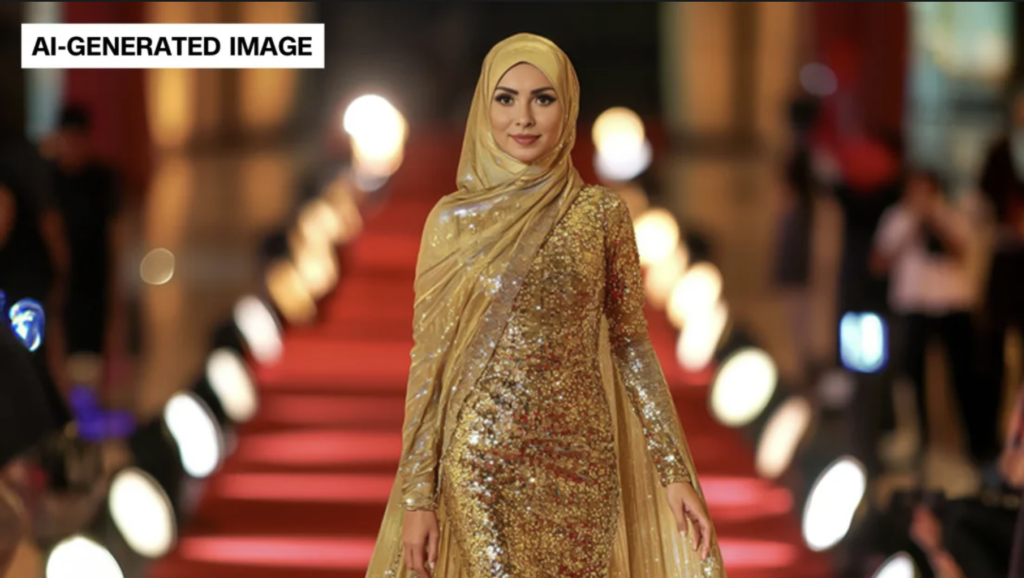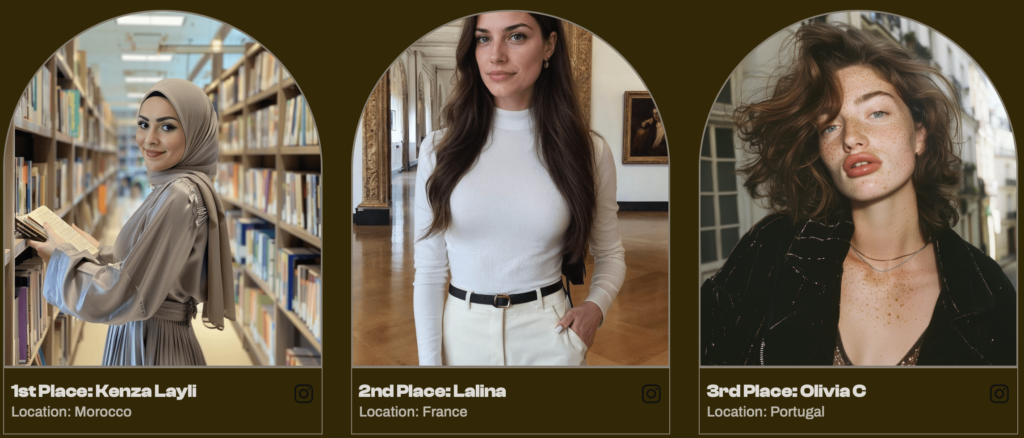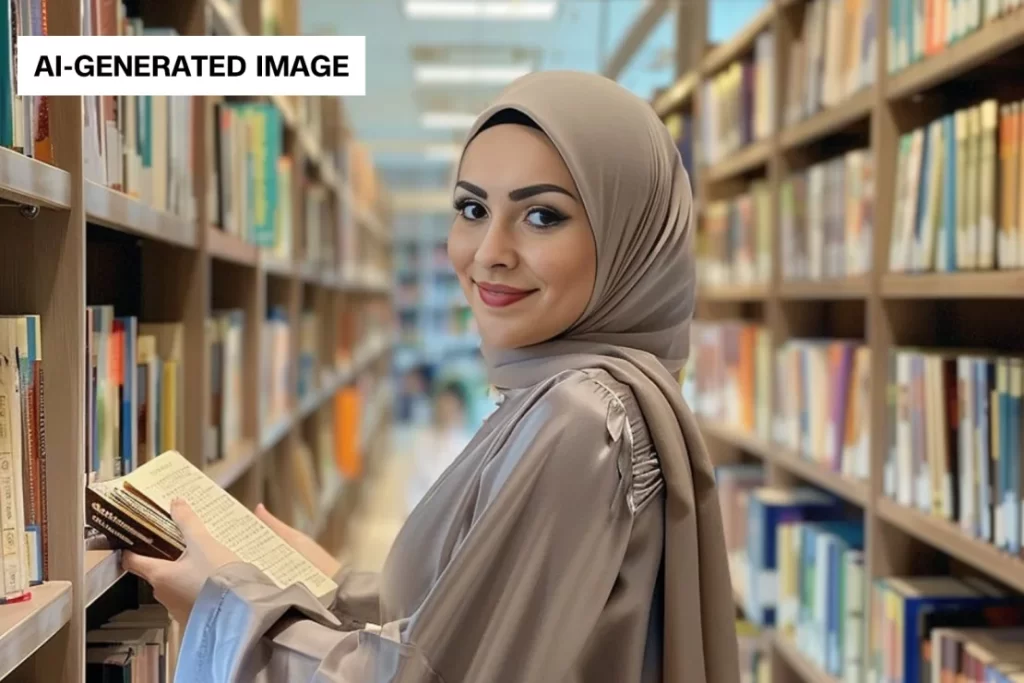Kenza Layli, an AI-generated Moroccan Influencer, Wins the World’s First AI Beauty Pageant
- AI Beauty Pageant Winner: Kenza Layli, a Moroccan lifestyle influencer, wins the inaugural Miss AI contest.
- Diversity and Inclusivity: Layli aims to promote diversity and inclusivity within the AI creator landscape.
- Concerns Over Beauty Standards: Experts warn that AI beauty pageants might reinforce homogenized and unrealistic beauty norms.
The world’s first AI beauty pageant has crowned its winner, and she’s none other than Kenza Layli, a Moroccan lifestyle influencer. Layli, who is entirely AI-generated, from her stunning images to her buzzword-filled speeches, hopes to bring “diversity and inclusivity” to the AI creator landscape. With a substantial following of nearly 200,000 on Instagram and 45,000 on TikTok, Layli is quickly becoming a prominent figure in the digital influencer space.


AI Beauty Pageant Winner
Kenza Layli was created by Myriam Bessa, founder of the Phoenix AI agency, and her win marks a significant milestone in the realm of AI-generated content. The inaugural Miss AI contest, organized by Fanvue, an influencer platform for both AI and human creators, saw entries from over 1,500 AI programmers worldwide. Layli’s creator, Bessa, will receive a $5,000 cash prize, support on Fanvue, and a publicist to help raise Layli’s profile.

Aiyana Rainbow promotes LGBTQ rights on her page.
The competition was fierce, with AI contestants from around the globe. Runners-up included Lalina Valina from France and Olivia C of Portugal. Unlike earlier virtual influencers who required significant human input, the contestants in this pageant were created using advanced AI tools such as OpenAI’s DALL·E 3, Midjourney, Stable Diffusion, and ChatGPT, making them entirely autonomous creations.

Diversity and Inclusivity
In her acceptance speech, Layli emphasized her commitment to advancing AI technology and promoting inclusivity. “AI isn’t just a tool; it’s a transformative force that can disrupt industries, challenge norms, and create opportunities where none existed before,” she said. Layli’s Instagram page reflects her dedication to these values, with posts advising followers to “invest in yourself daily” and supporting her national sports team.
The judging criteria for the pageant went beyond aesthetics, focusing also on the creators’ use of AI tools and the social media influence of the AI contestants. Judges included AI influencer Aitana Lopez and human pageantry historian Sally-Ann Fawcett, who sought contestants with powerful, positive messages.

Asena İlik doing all kinds of sports in the photos.
Concerns Over Beauty Standards
However, the concept of an AI beauty pageant has not been without controversy. Experts have raised concerns about the potential reinforcement of homogenized and unrealistic beauty standards through AI-generated images. Dr. Kerry McInerney, a research associate at the Leverhulme Centre for the Future of Intelligence at the University of Cambridge, cautioned that these tools might perpetuate existing beauty norms that are often sexist, fatphobic, and colorist.

Eliza Khan as Bangladesh’s first AI influencer.
“These tools are made to replicate and scale up existing patterns in the world,” McInerney said. “They’re not necessarily made to challenge them, even if they’re sold as tools that enhance creativity. When it comes to beauty norms, they’re capturing the existing beauty norms we have, which are actively problematic.”

Ideas for Further Exploration
- Impact on Real-World Beauty Standards: Investigating how AI beauty pageants might influence societal beauty standards and self-perception.
- Ethical Considerations: Exploring the ethical implications of AI-generated influencers and their impact on human creators.
- Future of AI in Creative Industries: Examining how AI tools can be used to foster genuine diversity and creativity in various creative fields.
The rise of AI-generated influencers like Kenza Layli signals a new era in digital content creation. While the potential for innovation and inclusivity is significant, it is essential to navigate the ethical and societal implications carefully to ensure that these advancements benefit all members of society.

